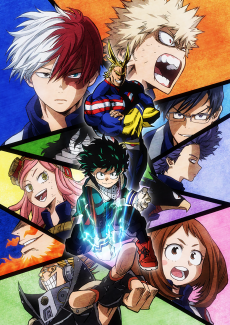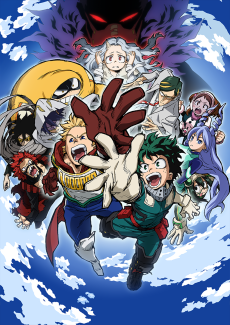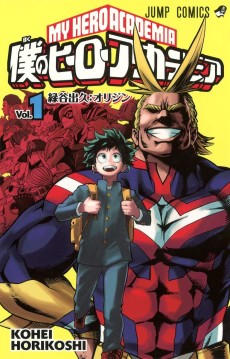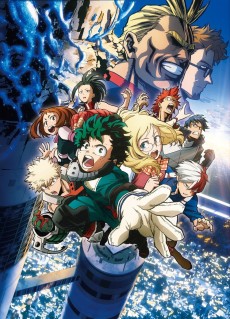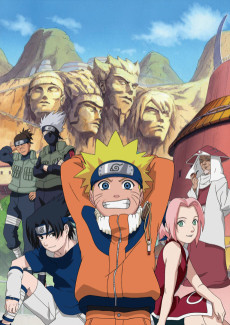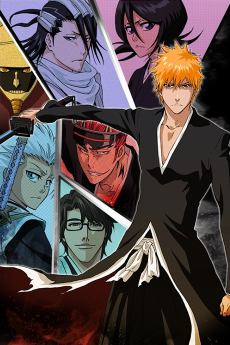BOKU NO HERO ACADEMIA 3
STATUS
COMPLETE
EPISODES
25
RELEASE
September 29, 2018
LENGTH
24 min
DESCRIPTION
Summer is here, and the heroes of Class 1-A and 1-B are in for the toughest training camp of their lives! A group of seasoned pros pushes everyone's Quirks to new heights as the students face one overwhelming challenge after another. Braving the elements in this secret location becomes the least of their worries when routine training turns into a critical struggle for survival.
(Source: Crunchyroll)
CAST
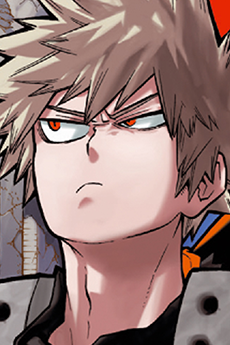
Katsuki Bakugou
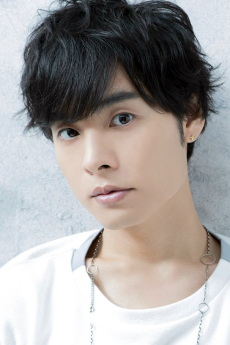
Nobuhiko Okamoto
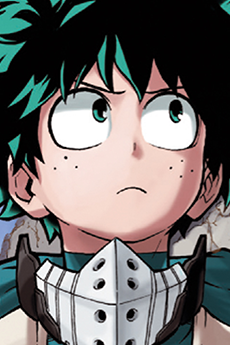
Izuku Midoriya
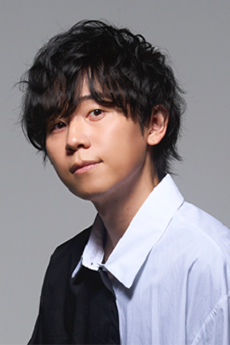
Daiki Yamashita
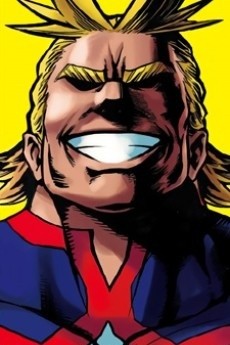
Toshinori Yagi
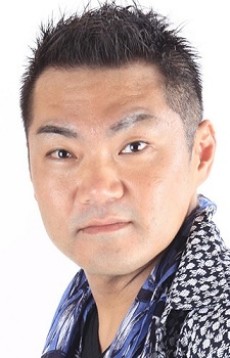
Kenta Miyake

Shouto Todoroki
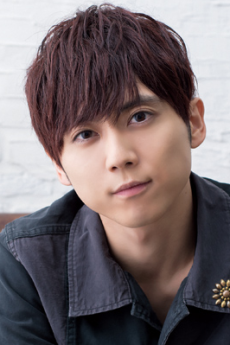
Yuuki Kaji
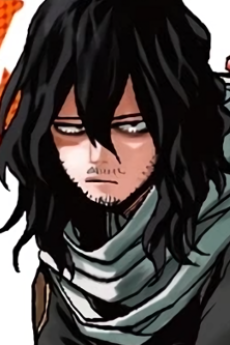
Shouta Aizawa
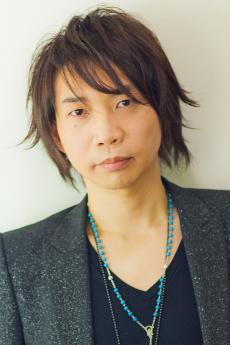
Junichi Suwabe

Eijirou Kirishima
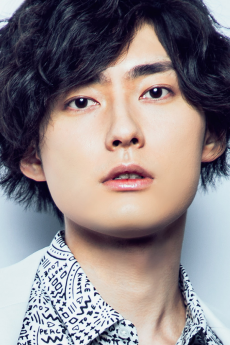
Toshiki Masuda

Himiko Toga
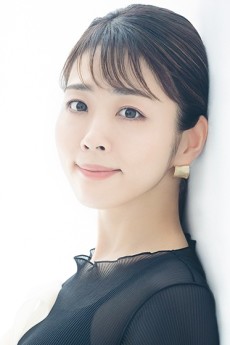
Misato Fukuen

Dabi
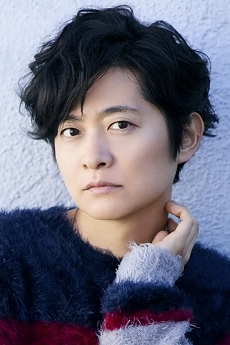
Hiro Shimono

Ochako Uraraka
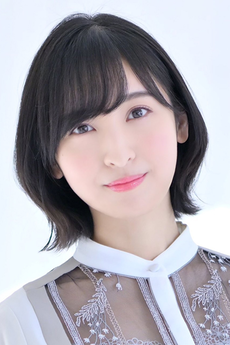
Ayane Sakura

Tomura Shigaraki
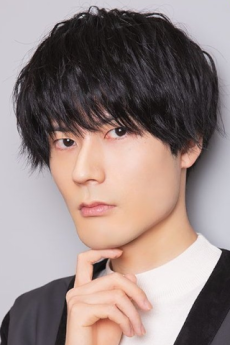
Kouki Uchiyama

Denki Kaminari
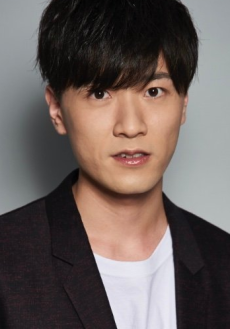
Tasuku Hatanaka
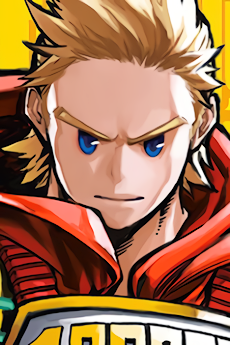
Mirio Togata
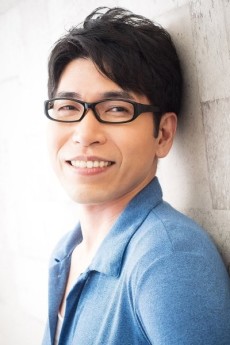
Tarusuke Shingaki
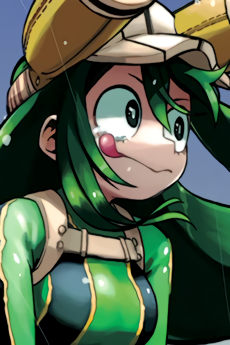
Tsuyu Asui
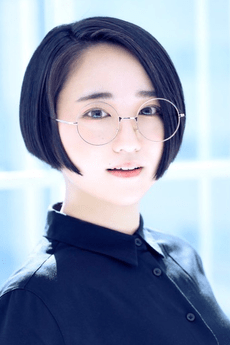
Aoi Yuuki

Kyouka Jirou
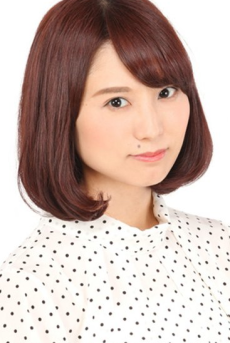
Kei Shindou

Tamaki Amajiki
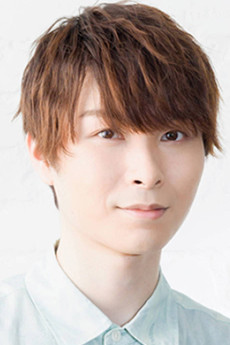
Yuuto Uemura
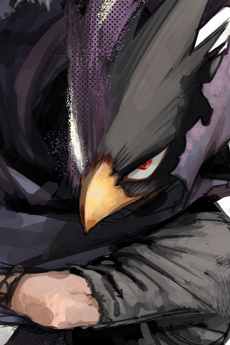
Fumikage Tokoyami
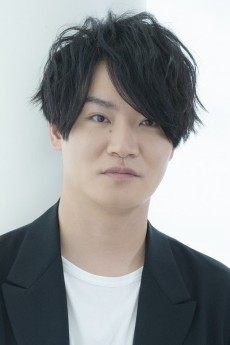
Yoshimasa Hosoya

Momo Yaoyorozu
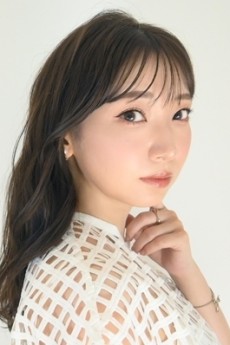
Marina Inoue

Hitoshi Shinsou
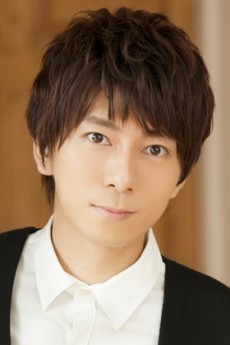
Wataru Hatano

Mina Ashido
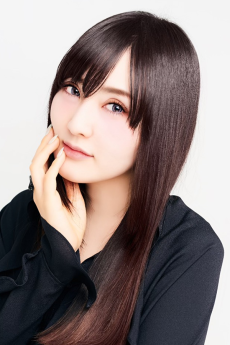
Eri Kitamura

Jin Bubaigawara

Daichi Endou
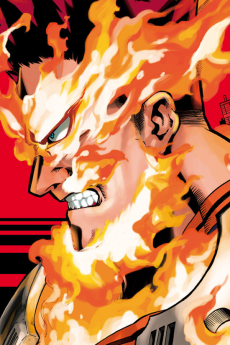
Enji Todoroki
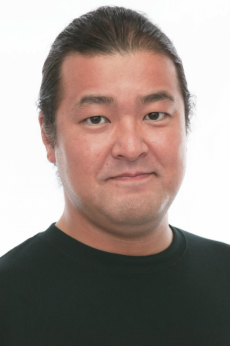
Tetsu Inada
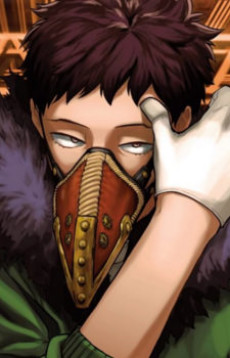
Kai Chisaki
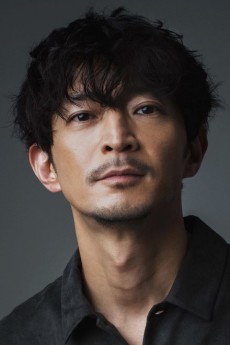
Kenjirou Tsuda

Tenya Iida
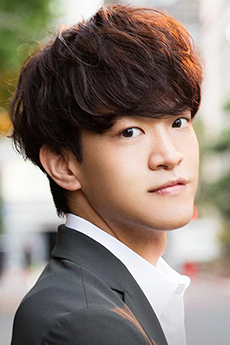
Kaito Ishikawa
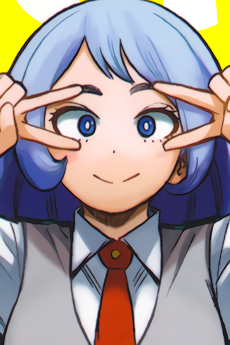
Nejire Hadou
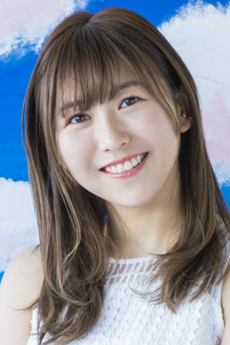
Kiyono Yasuno
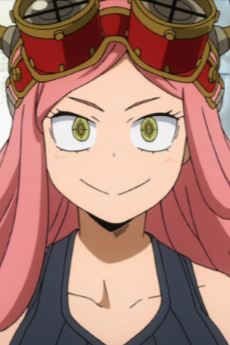
Mei Hatsume
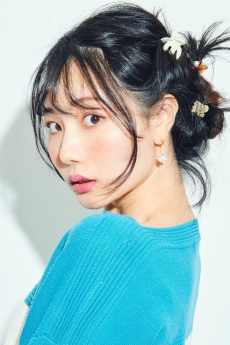
Shiori Sakurai
EPISODES
Dubbed
RELATED TO BOKU NO HERO ACADEMIA 3
REVIEWS

OVERPOWERED99
88/100Go further beyond and protect society from the villains' grips. The next generation of heroes, it's their turn now.Continue on AniList
Plus Ultra, the Latin phrase we've come to love ever since the epic final showdown on the first season of Boku no Hero Academia. Meaning to go further beyond, it encapsulates the very definition of what Season 3 is all about.
How far can the society of Heroes vs Villains run for without causing major destruction? What does it take to ensure protection, stability, and peace among a changing world full of Quirks? The story wrestles these questions solidly and seeks just how much can heroism triumph against those who wants to crumble society. Upon the villains' ambush, justice treads over a dangerous tightrope. When more menacing personalities and powers arrive on the doorstep, the suspenseful atmosphere becomes a trigger that sends out a wave of harsh realities towards both students and pro heroes alike. This has now turned into a stage to protect. As new insights are revealed within the evolving villainy allegiances, characters step outside of their comfort zone to battle against destruction. Emotions whirl around, strategies and moves are formed to ensure the best way out, and heroic resolutions truly shine to guard society from the flames. All these mayhems not only add to just be bursting with tense goosebumps or powerful excitements, there's also the influential message of the symbolical justice passing down onto the next generation. Ultimately, they're the next ones who have to fight. And to transition with this succeeding group of heroes, additional focus is given to more hero schools out there. A showcase of developmental progresses and relationships are shown within the students of Class 1A as they face against other students. Their growth ever since the beginning feels very tangible now and it's this aspect that answers why they are deserving to become society's future heroes. They will continue to go further beyond.
Following up after a great production during the second season, this season carries on with nuclear excitement. Shockwaves after shockwaves of intensity are sent through the audiovisual works produced by Bones. With their maintained consistency, the enjoyment hardly ever stagnated, leaving a solid set of episodes behind. And the proofs are found right on the battlefield. Among the powers of Quirks lie a combat zone full of the smokes and ashes caused by destruction. The animation takes precedent when it comes to focus over a wide array of moves. Not only does this help to give all sorts of lively forms, it also gives them motion on a heightened level. Seeing the characters move about a dynamic battlefield with energies and dangers everywhere enliven the action. This is further reinforced by other visual techniques such as camera shakes and character expressions, particularly the ones evoked by the villains. Their expressions are the embodiment of society's crumblers, the ones who threaten the heroes with heavy influence. In a way, it does give this season more of an emotional weight compared to previous seasons. Facing off against their foes, those they have to beat, will definitely raise the stakes. It's during these times where the voice actors express their skillful talents. They've accomplished a way to tell a powerful story, eliciting a sense of raging strength to never give up. And it doesn't just stop there. All the potent feelings didn't just come from the character's voice. Because in the background, bolstering soundtracks boost this season off with a hype that goes further beyond the horizon.
Season 3 of Boku no Hero Academia is a strength that maximizes what it's like to have a heroic identity. To watch them pit against many tough threats and situations, there's really no other reason than a straightforward one as to why I kept on watching them. It's simple. They are also my heroes.

Bubblesssssss
40/100Season 3: Trending DownwardContinue on AniListThe Decline of My Hero Academy Part 2: Season 3 [Season 2](https://anilist.co/review/13277 ) __(SPOILER WARNING FOR HUNTER X HUNTER, FULLMETAL ALCHEMIST, AND NARUTO + SHIPPUDEN)__ Season 3 is bad. It is the point where you finally realize that all the potential the earlier seasons flashed was no more than just that: unrealized potential. And all the problems with the writing weren’t blips, they become a constant problem that deflates the tension and drama in every arc.
Every time Deku we’re told Deku is risking his body only for him to be fine after a day in the hospital, every time a villain is hyped up only for them to lose while barely accomplishing anything, every time stakes are established and then retreated from immediately. It all starts to add up.
Decline of Visuals 1 Now, one thing that’s important to note is that the decline of the MHA anime is not entirely due to Horikoshi’s writing. A fair amount of blame should be attributed to Studio Bones, as well. I complimented the show based on how there was a lot more effort than I remember in season 1, and the reason I was surprised by that is because of how low the quality of visuals is in seasons 3 and 4.
MHA’s visuals in general have never been that sharp (especially in terms of backgrounds), but season 1 did a good job of covering for that by being loose and creative with the visuals.
That is no longer the case. The visuals are flat and the tone is overly stiff. Which uh, is a lot less fun to watch. And if you’re not enjoying what you’re watching, you tend to be less engaged. And when you’re not engaged by what’s in the foreground, you start to zone out and look at the backgrounds out of boredom.


At which point, you start to notice how cheap-looking and shoddily thrown together the backgrounds in this show look. You’ll notice the same tree copy and pasted over and over again, stale coloring, buildings with no style or personality put into how they’re drawn, and sometimes you can’t even tell what you’re even looking at:

This is supposed to be an establishing shot of the city. What the hell is this? Looks like a bunch of digital garbage.

What the hell are those things in the background even supposed to be?
Forest Training Camp Arc The first two arcs of season 3 are the forest training camp arc and class raid arcs, and they are both very bad. So bad that season 3 (and really, the whole series) never recovers from it. What you realize while watching these arcs that all the bad aspects of Horikoshi’s writing thus far aren’t going to go away: the problem has actually gotten much worse and is deflating any potential drama and tension for new arcs.
The Forest Training Camp arc isn’t as bad as the Class Raid arc, but…it’s still bad and starts season 3 off on a very bad note. Most of why I dislike this arc is the emergence of Horikoshi’s writing becoming…lazy. The problems that pop up in the Class Raid arc are recurring issues that have spun out of control, but The Forest Training Camp arc started to make me question if he even had a plan for where the story is going.
Here’s a brief summary:
Students go on a class trip to train. Deku meets Kota, a kid who lost his parents and hates heroes as a result. Villains attack, Pixie Bob is injured, Deku fights muscle guy and beats him, Bakugo gets kidnapped, arc end.
There’s a lot of dumb shit all over the place here, but let’s start with the villain’s reason for the raid:


What the fuck does that mean? Something I’ve noticed while re-watching is with the villains, you kind of have to ignore what they say at times to make the writing coherent. Like with Stain when he says that money and fame worshippers are ruining hero society, despite there being sort of 1 example of each that fit that description even existing. What he does in the alley though, points to a more coherent ideology.


Iida ignored an injured hero because he was too busy trying to get revenge on Stain for his brother. That selfishness and inability to control his emotions is bad and holds Iida back. You gave me an example of something Stain opposes directly and showed me rather than told me, excellent.
Then you have this shit. I don’t know what the fuck “make them see that their peace is resting in our hands" means. That’s confusing, vague nonsense. Later on, they explain that they want to kidnap Bakugo and try to show him that there are options other than being a hero. So why not just say that to begin with? You want to kidnap students to convert them to your cause. It conveys your motivations better than whatever the hell “make them see that their peace is resting in our hands” is.
Anyways. Most of the villain attack is standard MHA stuff. Villains attack, have mixed results, students counterattack. Blah blah blah. The real garbage starts here, with Pixie Bob getting hurt:

This is lazy, last minute garbage. Last-minute characterization is something I really don’t care much for, but this is pathetic. This is literally just Horikoshi saying “Hey I know you barely got to know this character, but you should feel something because I’m abruptly telling you she’s getting married”. There’s no emotional anything here. I don’t know how important marriage is to her, I don’t know who she’s getting married to, I don’t know anything about this woman! If this plot line had been developed ahead of time (aka Horikoshi had scenes where we saw her doting over her fiancé, or just scenes of the 2 together in general), then there would be grounds to put this line here. Because then, the show would have actually earned it. But you can’t do it like this. This is lazy. We’ll get back to this problem in part 4, as it (like the other parts of Horikoshi’s writing) snowballs out of control.
And then we get to the big fight from this arc, Deku vs muscle guy. I don’t care what his name is. His design is bad, he’s badly written, his only notable feature is how muscley he is. He’s muscley guy.

_muscle guy_ Before getting to the fight, we need to talk about Kota.

Kota is this little dipshit. His parents are heroes that were killed in the line of duty, and he now he hates heroes. Which is whatever. Generic backstory, depends on what you do with it. Its fine by itself. But what I dislike about this is Deku’s reasons for wanting to help him. The show treats Kota as though his opinion about heroes is…wrong. Something that needs to be corrected. This is an annoying part of the way MHA is written, and is yet another problem that spirals out of control in seasons 3 and 4. On its own it isn’t a big deal. But when you take into consideration the fact that Horikoshi very clearly wants to write villains who represent problems with society, but at the same time is unwilling to write flawed superheroes or hold accountable UA or his society’s heroes, and also seems to treat all criticism of the heroes as wrong…like which is it? You can’t have both, they clash with each other.
So obviously, this muscley guy is not a very good villain. Kota’s backstory with his parents was already pretty token, but did you really have to make muscley guy the same guy that killed his parents? That’s like the lamest twist ever. Then you have the fight itself. Which is…whatever. There’s some neat animation here I guess, but overall I don’t really care. The villain is bad, the drama is bad, and there aren’t really any stakes with Deku injuring his body because I know after the arc is over, he’ll sit in a hospital bed for a bit and then be fine. Speaking of...
Before we get to the episodes after the forest training camp arc, I'd like to highlight one thing Deku says during this fight:


Remember this quote. I'll refer back to it a lot going forward.
Fake Stakes 1 The episodes between the end of the Forest training camp arc and the class raid are important, in that they highlight the one problem with MHA that it has proven unable to escape from:
Horikoshi is deathly afraid of taking risks. His writing is among the stalest and safest in a popular shounen I’ve ever seen. He’s overly attached to his characters, he never provides long-lasting consequences for the actions of his characters, and he seems terrified of moving a single piece out of place.
There are 2 categories of this I’d like to highlight here:
UA
The first problem area when it comes to fakes stakes is this ongoing storyline with the media's criticism of UA and their failures to protect their students. Or rather, it’s just Horikoshi pretending there will be consequences for the students getting into trouble for both UA and the students, but then immediately retreating from it because actual consequences would be hard to write. Anyways, we're gonna establish the details of this subplot that are important, and I'll explain why this part of the story is a problem in a bit.
In season 1, the media manages to sneak onto school grounds after Shigaraki blows up the wall. This one isn't as notable as the others, but I just wanted to point it out because in this instance, UA couldn't even keep reporters off their school grounds. Maybe a wall and sensor isn't a great security system in a world where nearly everyone has superpowers, yeah? You think maybe someone might try to just jump over the wall or blow it up?

Anyways, then you have the villains that attack students at the end of season 1. Also does not reflect well on the school, and they receive criticism for it. This looks even worse when you consider the people that got in were proven to be morons. That's basically the subplot. The media goes after UA for letting the students fall into danger, and that's uh. That's it. As for the students:
In episode 31, the police guy tells Deku and friends that they and the other heroes are going to receive strict punishment...and then they don't do that at all. Not a huge deal they don't follow through here. But next time they get into trouble, there needs to be actual punishment for the students or UA. This could just be to establish stakes for the future. All you gotta do is follow through next time.
There you go, that's how all that...stuff is setup. The important part of this plotline is that somewhere along the line, the show has to be able to establish real consequences for UA for not protecting its students, and for the students of class A for getting into trouble. And...we'll get to that in a minute.Deku Destroying His Body
Another recurring problem is Deku's body. The threat of Deku damaging his body so badly he can't be a hero anymore is established pretty early. It’s a good way of keeping One for All from feeling overpowered, and a constant source of drama during Deku's fights. At least, it would be. If Horikoshi was willing to actually commit to it.

Knowing that Deku could permanently damage his body so badly he could never walk again is an interesting subplot, but it can't be if every time he risks his body, he stays in the hospital for a day and then he's fine again. This is, again, something that isn't a struggle for other popular battle shounens:
We're back to Naruto and Hunter x Hunter again.
In Naruto, when Rock Lee uses his Hidden Lotus ability, it has very similar risks to Deku's ability, with Lee's being a bit more extreme the further he goes with it.
Anyways, when we see Deku and Rock Lee overuse their ability to try to win, we do see them exhausted, crippled, etc. But it’s what the writers do after the fight ends that separate the two.
Rock Lee's body is torn up really badly after his fight with Gaara, and they tell Guy that it's likely he'll never fight again. But then, they follow through on that. He is absent from combat for the next 76 episodes, but it is a source of ongoing drama as we see his recovery process and struggle to come to terms with the possibly giving up his entire way of life. And then, several arcs later, when he pops out to fight Kimimaro, you get a huge adrenaline rush. This happens for 3 reasons: one, Rock Lee was gone for so long. Two, the last time we saw him he was in the most entertaining fight of the show thus far. And most importantly three, we saw his recovery process and knew how hard it was for him. So when he jumps out here, we know that his recovery is complete, he's back as a ninja, and we finally get to see him fight again. Great moment, and a great example of establishing stakes for a fight and actually sticking with them.

In Hunter x Hunter, Gon loses control of his emotions after he finds out Kite is dead. His anger leads him to use "everything" to kill Pitou. But since Gon is nowhere near strong enough to even fight Pitou, he has to sacrifice...well, everything. Based on what we know about nen and the way it works, seeing him suddenly obtain this much power means the amount he sacrificed is so great he will probably die.
Okay, so our main character has taken on a colossal risk and the stakes are his sacrifice took a massive toll on his body, and he could die. How do we follow up on this?



This is what it looks like to create stakes and stick with them. Gon nearly dies, and Killua has to go through tons of hoops to save him. And while yes, Gon does recover. He is completely absent from the manga for the following arcs. No, really. The protagonist is out of the story for several major story arcs. He can't use nen because of what he did to beat Pitou. Kurapika is the main character during the prince succession arc, which is the current arc. Togashi was willing to take that risk to make it clear that when he declares stakes, no matter how great, he will follow through. As a result, when they say something like "we could die”, I believe it regardless of who its referring to.
And yet with Deku, we are told time and time again that he is risking his body by being reckless, and every single time he goes to the hospital, the nurse heals him, and he's fine again. There are no stakes here. Deku has the strongest plot armor on I've ever seen.


This isn't even that hard to fix either. Here's how you do it:
Have the nurse heal him a couple times, then have the villains kill her; cutting Deku off from having an insta-heal every time he's reckless with his body. He will then be forced to actually deal with the damage he's doing to his body, and for the first time in the series actually following through with the stakes it established. It would also ground Deku, preventing him from just doing whatever he wants with no consequences.
But killing the nurse lady would be a risky choice to make, and we can't have that!
Or alternatively, stop reminding us of this plot point if you refuse to do anything with it. If you're gonna keep saying he's risking his body, then show the stakes! Have him damage his body so badly that he's absent for an arc. Naruto did it with Rock Lee. And Hunter x Hunter is doing it with Gon right now. The other guys don't seem to have a problem with it, and if MHA is as great as people say it is, it shouldn't either.
Class Raid Arc Now. The reason I brought up all of that now is because the episodes between the Forest Training Camp arc and the Class Raid arc are so fucking stupid, and it's because of the issues with the writing I just talked about. Deku suffers colossal damage to his body. He is up and walking immediately after. The heroes say that they're going to keep a closer eye on the students, and LITERALLY THE FUCKING NIGHT AFTER THEY SAY THIS, THEY LET THE STUDENTS SNEAK OUT. You even have the stupid fucking press conference the teachers put on, acknowledging all the criticism UA has rightfully gotten for putting its students in danger.
AND AS THEY ARE SAYING THIS, NO ONE IS WATCHING THE INJURED STUDENTS AT ALL, SO THEY ALL SNEAK OUT.


Remember this? Do you remember this fucking line? This is My Hero Academy summarized in a single fucking line. Say you're gonna do one thing, and never follow through. It constantly contradicts the message of its own main theme because of its incompetent and lazy writing.
"Yes, we're taking the criticism seriously and are making changes" as they are letting the students sneak out because no one bothered to keep an eye on them. Deku is threatened with losing his arms, and yet THE LITERAL DAY AFTER THE ATTACK, he sneaks out with the other students to go get Bakugo back! Ridiculous.
And Iida understandably objects to this stupid ass plan, but since Horikoshi refuses to take a risk like slowing down for a bit to enforce the stakes he just established, Iida backs down and goes with them.
This was the point where I could no longer deny the truth: My Hero Academy is a big piece of shit. Horikoshi is unable to establish any drama or stakes or tension due to his overly safe and lazy writing, and Studio Bones' effort in its production has gone down significantly.
It had another chance, though. It had one last chance to fix its villain problem. This could have done a lot to ease my growing irritation with the series. But again, it blew it.
All for One, and Why the Villains Need to Kill So, a growing issue I have had with MHA is the villains. Like yes, they're bad. If we're keeping track of only the ones we've seen so far, Shigaraki is an idiot (allegedly on purpose) and Stain doesn't accomplish much on-screen. That's in terms of writing though. Another big problem I have is that they never kill anyone.
You see, when you have a problem with weak villains like MHA does, a great way to establish a new villain as a threat would be to show them killing a hero we know on screen. Not in the past, not telling us they kill people; actually showing them kill someone. This ties into my problem of Horikoshi being overly attached to his characters and not wanting to make sacrifices or take risks with them. Because there are tons of expendable ones.
Anyways, the reason I bring this up now is because the class raid arc is where we are introduced to All for One, the Ying to All Might's Yang and supposedly the strongest villain there is. He has dozens of quirks stored away. He can use multiple quirks at once. This guy is a FORCE. So naturally, I'm expecting him to have a big impact in his first appearance. After all, All for One is THE GUY. Finally, a competent villain! This is gonna be great!

...Oh. 
_Oh…_ All for One is disappointing for a number of reasons, but really All for One being disappointing is a backbreaker itself. He NEEDED to succeed, and needed to make an impression on the audience.
The villains up to this point have been a joke. They also kinda just…always lose. Not every villain can just inflict "psychological" damage to the heroes or whatever. It’s the battle shounen equivalent of a moral victory. That's what Shiggy did in season 1. His raid was a laughable failure that got him ridiculed by the students and All Might. Stain loses without killing anyone in season 2. Dude's name is literally "Stain the Hero Killer" yet we see him kill no one and then he gets arrested. Eventually, a villain needs to actually win. Succeed at their goal, outsmart the heroes, kill someone. Just something, so I can believe for once that there’s some competency to these dumbass villains.
The most dangerous villain in the show has to establish themselves as a threat somehow when they show up. They can't just not kill anyone and get owned. Why? Because it makes them look incompetent, and that has a trickle-down effect on the other villains. You REALLY aren't going to take the other villains seriously. After all, if the biggest, baddest villain isn't allowed to win; if the heroes all have plot armor that can't be penetrated even now, ...what threat are the lesser villains? I see them as a joke now as a result of All for One's first appearance. His goal here is to kill All Might here. He does make All Might retire, but whatever. He still loses and gets captured. This is another moral victory.
The best way to shock your audience and establish this guy would be to have him cut down a hero. It would be great! Hasn't happened before, so it would shock everyone. Horikoshi even has 3 excellent opportunities to do it.

Obviously the preferred choice would be All Might. Him dying in a fight with All for One is a better way of inflicting fear admist uncertainty among the citizens for future arcs than him just retiring. And it would display vividly the ultimate act of what All Might says is the most important qualification for a hero:
The spirit of self-sacrifice.
It doesn't have to be him, though. Best Jeanist is incredibly expendable. Gran Torino is old and senile. They're so expendable and yet Horikoshi just...can't...let go of them.
You kill Best Jeanist here, and the following fight with All Might suddenly becomes incredible tense. Why? Because when you kill a hero like that, it firmly establishes the stakes as life and death. Something that was kinda not established during the season 1 raid, Stain arc from season 2, and the forest training camp arc. And, it would completely shock the audience, thus raising their investment. And that shit is important for a series like MHA.
An important principle of being a hero in this series (and for…most battle shounens) is that they are fighting for their lives. As such, it’s important to establish that the stakes of fights are well, life and death. This is something I think My Hero Academy is trying to do.
But without examples of heroes we know LOSING their lives fighting or just generally, it's hard to really say the stakes are that high. We’re told that people could die, but we’re never shown it. Because all the heroes have plot armor. They aren't allowed to die because they're heroes. Why? Horikoshi is unwilling to take risks. And no, heroes that died before the show starts don't count. Heroes we know and that have been established, that we've seen in the series, dying. That's what it is needed here.
This is, again, something writers of other popular battle shounens understand. Let’s knock these down quick, I don’t need a paragraph to explain each:Hunter x Hunter:

Everyone Hisoka kills during the Hunter exams: establishes Hisoka as a serious threat and that the Hunter exam is very much life or death, which is very much true.

Ponzu and Pokkle: displays how ruthless and cruel the chimera ants can be.

Kite: juxtaposed with how Kite wiped out an entire squadron with one swing earlier, establishes how unbelievably strong the Royal Guard are.

Those 2 dudes at the beginning of the Zoldyck arc that get killed by Mike: establishes up front how dangerous the Zoldyck manor is.
Fullmetal Alchemist:

Hughes: this is a message from the Homonculi to the audience and the Elric brothers: if you keep snooping around, we'll kill you.

Basque Grand: makes it clear that Scar can kill any state alchemist if he gets the opportunity and Edward and Alphonse are not safe.
Naruto:

Jiraiya: establishes Pain as a huge threat. He just killed one of the legendary sanin for fuck’s sake.

Gaara mercilessly slaughtering those rain ninja in the forest of death and killing Dosu: establishes deadly stakes for the fight vs Rock Lee and vs Sasuke, respectively.

Orochimaru kills Hirouzen: makes it clear how dangerous he is, and more importantly makes the audience worry about what's going to happen when Sasuke decides to chase after him. "Oh, shit. that guy killed the hokage. And Sasuke's going to go with him?"
Stuff like this sends a message, and its usually pretty good at scaring the audience if they’re invested. When a villain kills someone, it says “this could happen to one of the protagonists if they aren’t careful”.

Killing a character is an amazing way to establish danger, something that MHA sorely lacks at this point due to how shit the villains are and how safe the writing is. This is especially true here, because it ruins what could be a genuinely great fight. On paper, the way it's set up works. But to once again have no one die and the villain lose despite setting the stakes higher than ever; that just can't happen here.
In Between Arcs 1/Fake Stakes 2 Now hold on just a minute. Because everything I complained about in the Fake Stakes sections immediately comes back again after the All for One vs All Might fight.
During the first half of episode 50, All Might yells at Deku for destroying his body and sneaking out even though All Might and the other dumbass teachers weren't watching the students, and thus let it happen. Also, Deku is fine after all that. Walking around with some bandages. In the second half of episode 50, Deku's mom takes a stand against All Might and UA for continuously allowing them to endanger her son, and threatens to pull Deku out of UA. This, of course, does not happen. All Might begs and she gives up. (flashback to Iida giving up trying to stop the students from sneaking out?). The show declares stakes in the form of consequences for a student and UA, and this is again retreated from in the same scene.

Despite episode 50 focusing on the fallout from the class raid for UA and the students, including showing several parents of class A students angry with the school, not one of those parents pulls their kid out. So, no consequences of any kind for anyone. The most we get is that UA has a dorm system now. Ugh.
Later in this same episode, Eraser says that he would've expelled almost all of them if not for All Might's retirement. The fuck does All Might's retirement have to do with anything? Just expel them. All Might's retirement is just a lazy excuse to not follow through with stakes you yourself established. Stop being lazy and taking shortcuts with the writing. You keep saying you're going to do one thing, and then you don't because you're scared of the risk. As I recall, that seems to contradict what you said earlier:


Provisional Hero License Exam And finally, we have the last arc from season 3. Like usual, we start with the stakes:

That’s actually pretty intense! Sure hope they don’t immediately retreat from that after the exam like they always do.
Overall, this arc is…bleh. I think its main problem is that it feels like it goes on forever. And due to the repetitive plot structure, this just feels like the 10,000th exam stage. I don't believe you about the stakes. Deku will be fine no matter what they do. None of this matters. I’m not invested anymore. And of course, the visuals don’t help matters at all.


I think the training camp and Bakugo retrieval arcs were just so bad that the show can't recover now. I am actively irritated with the show now while watching. Also, the tone is incredibly tiresome and stiff now. I miss the loose feel of season 1, where All Might swore in front of Deku and it didn't take itself as seriously as a heart attack. Seeing the number one hero in the world, the symbol of peace, swear in front of a young kid is hilarious. It made me feel like at least part of his hero persona was a front that he put on. As such, he felt a bit more human. I liked that side of him. I don't really like him at all now. He's boring. This exam stage in particular is really fucking boring. They're doing a little with making the people they're supposed to be rescuing assholes, but it isn't enough.
And then there's this guy, who has possibly the funniest backstory ever written.

“Todoroki was mean to me and now I don’t like him” ahahahahaha
__Exam Stages/Fake Stakes 3__ Oh, and guess what? Just like I said, they waved off the stakes. Those who failed can take a 3 month course to get their provisional licenses anyways. Since this is now a problem I can't ignore, I'll address it here. One of the biggest offenders of fake stakes in this series is the exam stages. Horikoshi has a crippling habit of creating stakes for the students during exams, only to backtrack as quickly as possible once the arc is over. For example:
In episode 5, Aizawa threatened to expel the student that scored the lowest on an entrance exam. This is quickly retreated from the next episode. Not a big deal that they backed away from it here. Just make sure you follow through next time, that way I can believe there's actual stakes to these exams.
In episode 38, the students are threatened with having to go to summer school if they fail.

This is again, retreated from after the arc ends. Now it’s a problem. Because twice now, you have declared there to be stakes via consequences for failing or performing poorly in an exam, and both times you failed to follow through. There will be more examples later. So, why is this bad?
Because 1, I don't believe the show when it tells me there will be consequences when someone fails. Because there never are. Be it the students getting into trouble, UA failing to protect its students, or something as simple as student failing an exam. You always retreat from it afterwards. And because of that, I'm less engaged during exams. After all, there are no stakes because Horikoshi insists on giving plot armor to everyone in class A. And 2, because it’s supposed to be difficult to get through UA, right? They tell us that very early in the show:

_(From episode 4)_ Like a lot of things the show does, this is telling without showing. The show will tell us it is difficult to get through UA, but it really isn't at all. The school bends over backwards constantly to keep students from failing. This is not really something that should be a struggle for a battle shounen at all, at least if you're a writer that's willing to take risks. Want some examples?
Let’s look at the Hunter exam from Hunter x Hunter and the chuunin exams from Naruto. These are basically the same thing as the exams the characters go through in UA. To become a pro hunter/ninja, you have to pass these exams. Naruto and Hunter x Hunter want you to know that these tests are difficult and making it through is a significant is a huge feat. So how do Kishimoto and Togashi support it?
Uh, by having people fail. A LOT of entrants fail in both the chuunin exams and Hunter exams. And not scrubs, either. One of the main characters fails the first time in Hunter x Hunter, and most of the entrants that you end up spending most of the show with end up failing in Naruto. As for as numbers go:
Most of the characters lose before the finals, including main characters. Killua fails in Hunter x Hunter. if you look at insignificant characters, all but 7 failed the hunter exam. 400+ examinees failed. In the chuunin exams, hundreds failed as well. There were only 5 genin remaining when the Konoha Crush interrupts the exams. (Failing is a bit different in Naruto. You can lose in the finals and still become a chuunin). Why does this matter?

_Killua fails the Hunter exam_ Because part of the point of having these exams in the first place is to make it clear how difficult it is to become a shinobi/hunter. People need to fail out so 1, the threat of characters failing is established. 2, to establish stakes. And 3, establish the extreme level of difficulty to accomplish the goal, for the purposes of making the task seem daunting (which will be a constant source of drama), and to make those that have accomplished it (in this case the pro heroes) worthy of respect for having reached it.
Hunter x Hunter and Naruto wanted their exam stages to seem difficult and intense, so they supported it by being willing to have characters fail. It’s really that simple. Kishimoto and Togashi as writers are willing to take those risks to make their manga better. Horikoshi is not.
__Class B__ Another example of fake exam stakes that annoys me is how they keep telling us that if class A trips up, students from class B could replace them. This is another good source of drama, and adds even more stakes for the class A students. But like all the other stakes, the show never follows through with it. I really wish they would too, because there are some weak characters in class A I really wish would get cut out. Like the animal guy, and the tail guy, and especially this guy:

He's boring and his power is boring. Get rid of him.
I would love for Horikoshi to take a risk and move one of these boring dorks out for someone like Shinso, but Horikoshi is again too afraid to move even a single character out of place for some reason. So once again, you say this one thing will happen, and then retreat from it afterwards. You never follow through with what you say you’re gonna do, which, again, contradicts this:


Deku vs Bakugo Capping off season 3, we have Deku vs Bakugo. And look. I know people think this fight is amazing. And…I mean it could be. If it was organic to the narrative, had stakes, and wasn’t forced into a place in the story it doesn’t belong. The problem I have with this fight is it doesn't represent a moment where past and/or current differences and philosophies collide naturally due to the narrative. The show is pausing its story to have this fight. Deku vs Bakugo is MHA's version of Naruto vs Sasuke. But with Naruto vs Sasuke, it was very much the right time for that fight, and there were real stakes. Sasuke wants to go off and join Orochimaru to gain power, but Naruto knows and we as an audience know that Orochimaru only wants to use Sasuke as a vessel to switch bodies. And while you might think Sasuke can handle himself, …we watched Orochimaru kill a hokage earlier. (One of the benefits of killing off characters btw). So we know he is a serious threat to kill Sasuke. That's the kind of stakes and emotional drama you need for a fight between main characters. Which is what I think this fight lacks.
Granted, there isn't really a rule to how you write a fight like this. And I'm not really advocating for it to just do what Naruto did. It isn't a bad fight. I just think you need a little more here. Something to be lost for Deku when he's defeated. And have it be written more organically into the story, rather than shoving it awkwardly between arcs.
In Between Arcs 2 We end season 3 with episode 62. The first half of it is looking into the idea of how All Might’s retirement is affecting normal citizens. This is, of course, a very good idea. The show hasn’t really put any effort into humanizing the citizens so we gave a shit when villains attack and put their lives in danger. It also is the start of the idea that Endeavor doesn’t really work as an All Might replacement. He lacks the charisma and people just don’t react to him the same way. It’s…interesting. And they follow up on it later. Uh, good stuff.
The second half is more fake stakes for Deku’s body and consequences after his fight with Bakugo. Deku is fine, again. Deku and Bakugo broke curfew, destroyed a bunch of shit, fought, and their only punishment is they have to clean more. Really? After sneaking out during the class raid? Have the teachers at UA learned absolutely nothing this entire time?
Big three arrives, season over.
[Two Heroes](https://anilist.co/review/13322) 
Nischara
95/100It excels with a dynamic plot, character growth, and a powerful Deku/Bakugo dynamic, marking a great turning point.Continue on AniListAfter watching he third season of My Hero Academia, I was truly amazed by how good it turned out to be in the end. I already found the beginning relatively strong, but I felt that in Season 2, many plotlines were somewhat stagnant. However, most of it served as a setup for Season 3, which is something I can absolutely appreciate.
I particularly like the narrative structure. In this season, it became more apparent than ever that the heroes have to go through a real educational system with various curricula. At the same time, the narrative convincingly justified why certain activities, which should have been relevant for a higher grade, were antedated. This, combined with many smaller time jumps, ensures that there is always a new school activity at the forefront of each arc without it feeling contrived. The numerous gradual steps they have to go through, especially the provisional hero license exam, feel authentic because they reminded me of my own educational path and the many stages I had to go through during my training, leading to a provisional and later a permanent teaching license. This makes the world feel extremely alive, which is deepened in other aspects, particularly in how the public reacted to certain events by criticizing U.A. High School for its lack of protection for the students and the school having to come up with a PR strategy or the public's reaction to All Might's retirement. The season achieved the perfect balance: the world doesn't continue as before, nor does anarchy suddenly break out on the streets. People are mostly bewildered, searching for orientation, with many finding it difficult to perceive Endeavor as that guiding figure. This convincingly shows how important All Might's role was beyond his power, namely that he managed to be so approachable to the general population that he could hold them together. And also why his departure doesn't lead to immediate anarchy but forms factionalization within this cohesion: people slowly losing faith in heroes; people still believing in heroes and their protection; people seeing others as responsible for actively helping heroes instead of being passive. All of this exists simultaneously and is publicly discussed, making the entire world feel immensely dynamic.
Apart from the plot, the season shines with its characters, all of whom are excellently portrayed, especially Deku and Bakugo. Deku is one of the best Shonen protagonists I have ever seen because he undergoes one of the most interesting journeys. He grew up without powers but always stood out for having the courage of a hero, analyzing them so well due to his sense of strategy. This is not Light Yagami's 5000 IQ level; it's grounded enough that you can follow Deku's thought processes, yet it remains his great strength. This is what he needs for his ability, which, although powerful, is not suitable for his body. So, he constantly tries new tactics, learns from his mentors, learns from his opponents, gradually making One for All "his own." It's a fascinating middle ground between Shonen protagonists who either get their power boosts more or less out of nowhere and those who have to earn them. It believable explains why Deku is so special, that he has the potential to become the greatest hero of all time, without making it seem like everything is handed to him on a silver platter. This is also shown through the real threat that if he continues to injure his body, he might lose his arms. It's this creativity demanded from Deku that makes his battles and his journey so exciting.
However, the best character in this season was undoubtedly Bakugo. So far, he has been a difficult character to understand, as he hasn't shown many facets beyond his anger. However, there were indications that there was more to him, such as during the provisional hero license exam where he behaved very rationally, contrary to what his opponent assumed based on his previous behavior. Also by slowly befriending Eijiro because he was the only one who consistently followed him without blaming him or criticizing his behavior. But I was truly surprised by him when he was kidnapped and without hesitation said he would remain true to the path of a hero. If Bakugo weren't such a complex character, this could easily have turned into a new Sasuke storyline, where he does anything for power. Instead, this scene made it clear how similar he is to Deku and how important All Might was as a figure for Bakugo as well, even though it wasn't as apparent prior. The parallel between them became evident, especially when All Might made the final blow against All for One, and both were equally invested and similarly affected by All Might's retirement. This not only made it clear through the eyes of Bakugo what an important symbol All Might was not only for Deku but for all of humanity, but suddenly, his entire anger was contextualized: at first, he felt inferior to Deku because All Might recognized him and built a special relationship with him. However, Bakugo also had to carry around the feeling that his own weakness was responsible for All Might losing his powers. Seeing how guilty Bakugo felt really touched me and made me understand his motives to challenge Deku much more than - forgive the comparison once again - I could with Sasuke. This wonderful moment came full-circle when All Might embraced him and apologized for not understanding how Bakugo felt all this time. After that, Bakugo experienced a kind of internal catharsis when All Might finally revealed his secret, and contrary to his fears, Bakugo was absolutely loyal. On the contrary, he even criticized Deku for his lax handling of All Might's secret and was then able to let go of his hatred towards Deku and himself, seeing him as a rival on equal footing. For me, this was the absolute highlight of the series so far. It was an incredibly powerful ending, and the Deku/Bakugo rivalry is one of the most well-developed I have ever seen.
I also liked that the provisional hero license exam went so unexpectedly. Due to his character, Bakugo didn't pass without a deus ex machina moment preventing it, which was unexpectedly expected, while Shoto, as the top of the class, despite his character arc during the fight, didn't manage to make up the difference to pass the exam, which was also unexpectedly expected. My Hero Academia doesn't do what you would expect from it topically, nor the exact opposite, but it always comes up with creative solutions to bring these conflicts to a conclusion, which I liked. Another such case is that it was Deku's mother who had to be convinced to let him into the dormitory. The latter, it should be said in this context, is also a nice example of how the world is constantly changing: there are no huge time jumps like in Dragon Ball, but the status quo doesn't remain the same and fluctuates continuously, making the overall setting appear more dynamic. Seeing the student group after the orientation phase now living together as roommates makes you appreciate them more.
Lastly, I find it very interesting how Season 1-3 feel like the first chapter of a narrative that is now experiencing its first turning point and moving on to the next. The primary example of this is, of course, All Might's retirement and the reconciliation between Bakugo and Deku, the acquisition of the provisional hero license, and the gathering in the dormitory. However, it goes much further: All Might represents One for All and, together with All for One, stands for the old generation. With the final showdown between the two, this constellation comes to an end, and both slip into the mentor role for their students: All Might for Deku and All for One for Tomura. The stories of both are parallelized, and while in the first chapter, both were introduced and built up, the next chapter will now show how both fulfill their roles without their master as a support in battle. As with Deku/Bakugo, the protagonist-antagonist role is one of the most exciting constellations I have seen so far.
Overall, I can now say, especially now, that My Hero Academia has really hooked me, and I am genuinely invested. I love the characters, the world, and the dynamic plot, and I can't wait to see how it will continue.
SIMILAR ANIMES YOU MAY LIKE
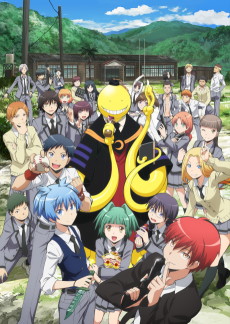 ANIME ActionAnsatsu Kyoushitsu
ANIME ActionAnsatsu Kyoushitsu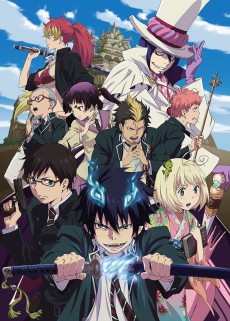 ANIME ActionAo no Exorcist
ANIME ActionAo no Exorcist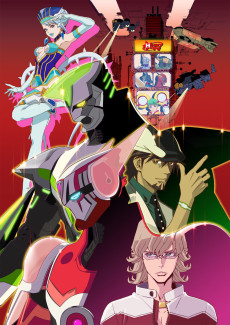 ANIME ActionTIGER & BUNNY
ANIME ActionTIGER & BUNNY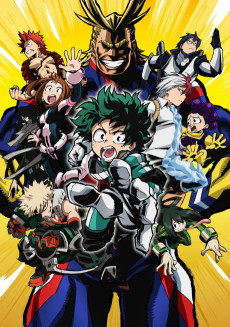 ANIME ActionBoku no Hero Academia
ANIME ActionBoku no Hero Academia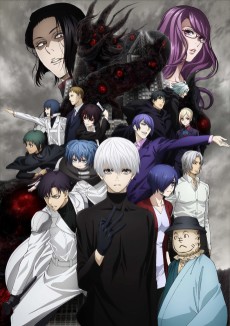 ANIME ActionTokyo Ghoul:re 2
ANIME ActionTokyo Ghoul:re 2
SCORE
- (3.95/5)
TRAILER
MORE INFO
Ended inSeptember 29, 2018
Main Studio bones
Trending Level 8
Favorited by 8,312 Users
Hashtag #HEROACA_A

